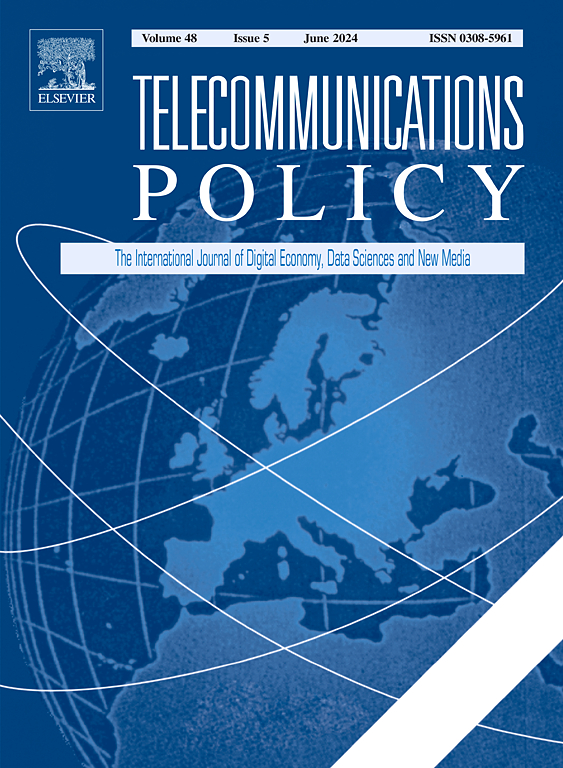数字媒体生态系统中人工智能搜索引擎中的采购行为和新闻媒体的角色:比较五种语言的政治新闻检索
IF 6.4
2区 管理学
Q1 COMMUNICATION
引用次数: 0
摘要
使用微软的Copilot,我们用英语、繁体中文、简体中文、德语和瑞典语五种语言进行了选举新闻的对比分析。虽然Copilot主要使用专业新闻媒体,提供快速获取合成信息的途径,并展示了消息来源的透明度,但它经常制造错误信息,并错误地将新闻来源的属性归为错误。该分析强调了Copilot的采购行为的差异,显示出在不同的提示语言中对英语资源的强烈依赖,尤其是来自英国和美国的资源。这种依赖引起了对信息同质化和区域观点边缘化的关切。该研究强调了新闻媒体的关键作用和困境,新闻媒体虽然在民主社会中作为权威来源,但必须驾驭日益增长的人工智能介导的信息生态系统,以保持对-à-vis强大技术基础设施的自主权。通过评估Copilot的采购实践和错误信息的流行,本研究有助于探讨人工智能对新闻传播、媒体多样性和民主进程的影响。具体来说,我们讨论了新闻媒体可用的两种方法的后果,以防止其内容被无偿使用:选择退出抓取(“平台平衡”)或与人工智能公司建立合作伙伴关系。目前的监管努力,包括版权改革和欧盟人工智能法案,都未能保护新闻业或监管人工智能。我们提出政策和监管建议,以提高人工智能生成内容的透明度、事实正确性、来源归属的准确性和问责制,支持数字时代的知情公民。本文章由计算机程序翻译,如有差异,请以英文原文为准。
Sourcing behavior and the role of news media in AI-powered search engines in the digital media ecosystem: Comparing political news retrieval across five languages
This study examines the role of news media in the context of generative AI-enhanced search engines, focusing on the 2024 Taiwan presidential election. Using Microsoft’s Copilot, we conducted a comparative analysis by prompting election news in five languages: English, Traditional Chinese, Simplified Chinese, German, and Swedish. While Copilot uses mainly professional news media, provides quick access to synthesized information, and exhibits source transparency, it frequently creates misinformation and misattributes news sources. The analysis highlights variations in Copilot’s sourcing behavior, showing a strong reliance on English-language sources, particularly those from the UK and US, across different prompting languages. Such reliance raises concerns about the homogenization of information and the marginalization of regional perspectives. The study underscores the critical role and dilemma of news media, which, while serving as authoritative sources in democratic societies, must navigate an increasing AI-mediated information ecosystem to maintain autonomy vis-à-vis powerful technological infrastructures. By evaluating Copilot’s sourcing practices and misinformation prevalence, this research contributes to the discourse on AI’s impact on news dissemination, media diversity, and democratic processes. Specifically, we discuss the consequences of two approaches available to news media to prevent their content from being used without compensation: opting out of crawling (“platform counterbalancing”) or establishing partnerships with AI companies. Current regulatory efforts, including copyright reforms and the EU AI Act, fall short of safeguarding journalism or regulating AI. We propose policy and regulatory recommendations to improve transparency, factual correctness, accuracy in source attribution, and accountability in AI-generated content, supporting informed citizenship in the digital age.
求助全文
通过发布文献求助,成功后即可免费获取论文全文。
去求助
来源期刊

Telecommunications Policy
工程技术-电信学
CiteScore
10.80
自引率
12.50%
发文量
122
审稿时长
38 days
期刊介绍:
Telecommunications Policy is concerned with the impact of digitalization in the economy and society. The journal is multidisciplinary, encompassing conceptual, theoretical and empirical studies, quantitative as well as qualitative. The scope includes policy, regulation, and governance; big data, artificial intelligence and data science; new and traditional sectors encompassing new media and the platform economy; management, entrepreneurship, innovation and use. Contributions may explore these topics at national, regional and international levels, including issues confronting both developed and developing countries. The papers accepted by the journal meet high standards of analytical rigor and policy relevance.
 求助内容:
求助内容: 应助结果提醒方式:
应助结果提醒方式:


